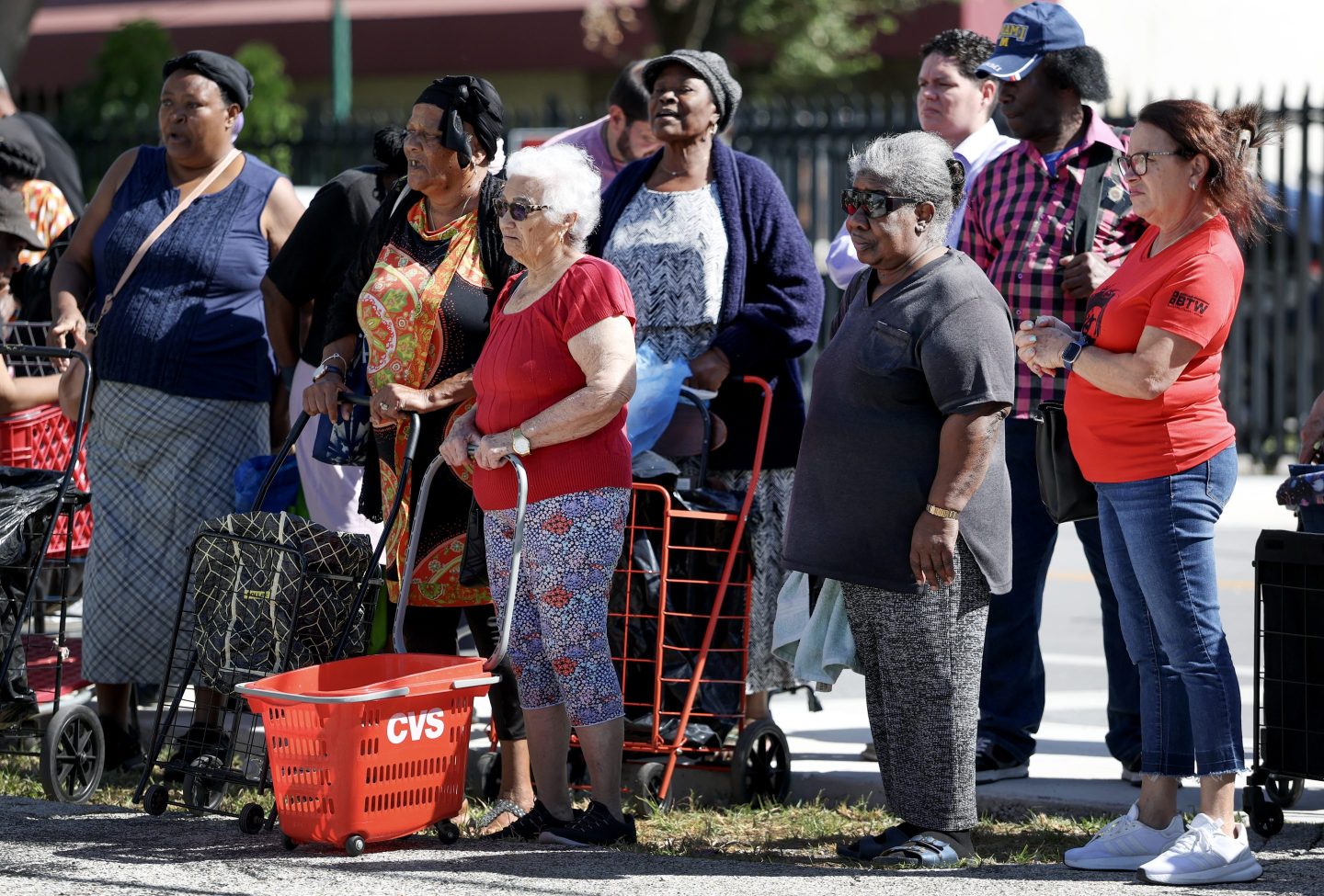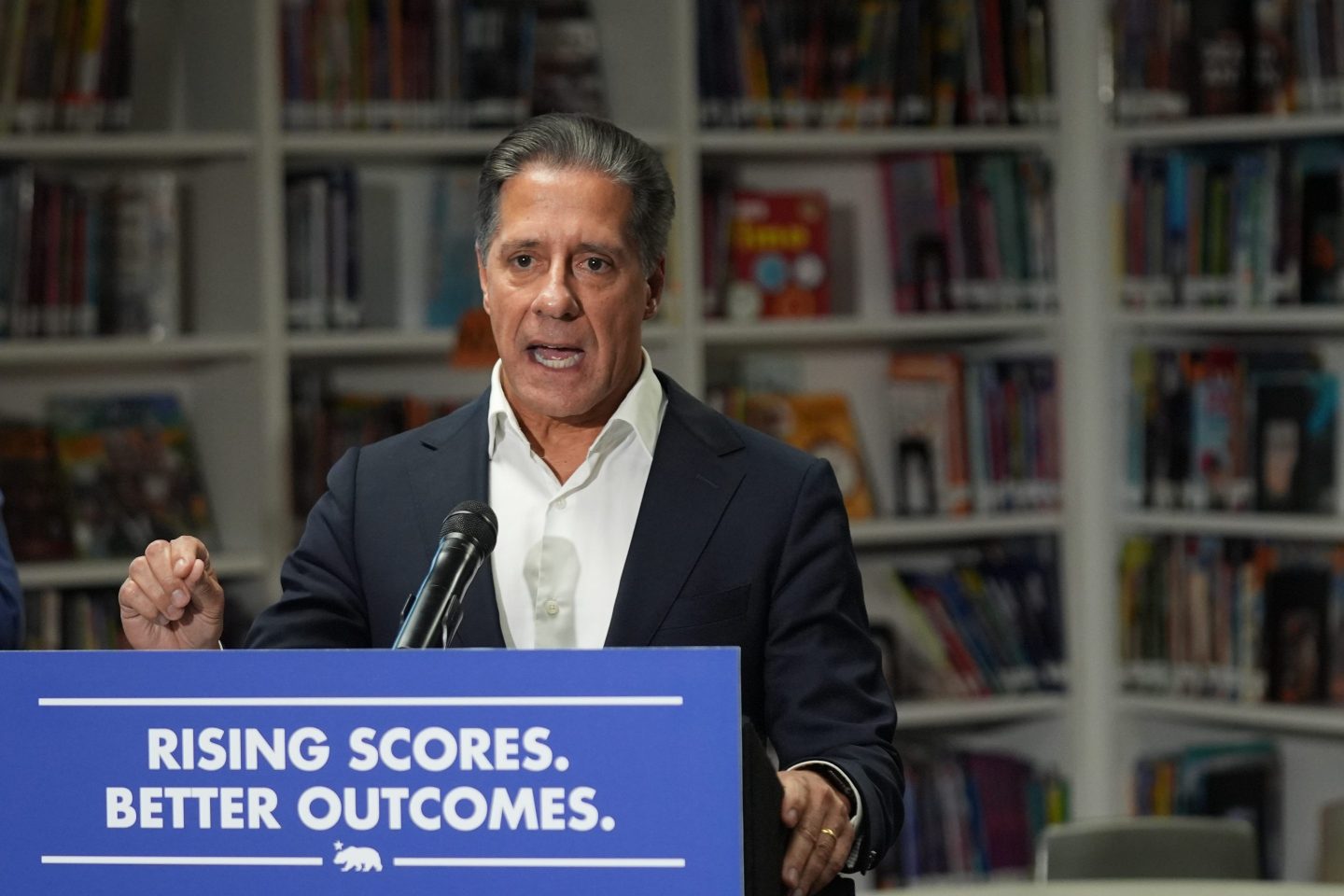As the Trump administration scrambles to defend its decision to only partially fund food stamp payments during the ongoing federal shutdown, the nation’s largest hunger-relief organization says millions of Americans are already slipping through the cracks.
On Friday, the Supreme Court temporarily halted a lower court ruling that would have required President Trump’s administration to fully fund the nation’s Supplemental Nutrition Assistance Program (SNAP) obligations. The pause grants the White House more time to argue its case against the mandate, which critics say could have strained federal resources, while supporters viewed it as essential to safeguarding food security for millions of low-income Americans.
The recent moves have deepened confusion for the 42 million Americans who rely on the Supplemental Nutrition Assistance Program (SNAP) payments, which help feed one in eight U.S. households.
“This situation is catastrophic,” Monica Lopez Gonzales, Feeding America chief marketing and communications officer, told Fortune. “Right now, 42 million people are having a hard time affording groceries, and their lives are being disrupted because their benefits have been disrupted.”
The group operates a network of more than 200 food banks and 60,000 pantries nationwide. Demand has surged since the shutdown began: traffic to its online food-bank locator has jumped sixfold, reaching more than 28,000 visitors a day as families search for help, Gonzales said.
“The lines are getting longer, and the food is running out early,” the executive said. “We see veterans, older adults, moms, and kids — everyone is stressed.”
The crisis follows weeks of warnings that SNAP, which costs about $9 billion a month to run, was on the brink of running out of funds due to the shutdown.
The Trump administration initially said it would pay only 65% of benefits using a $4.6 billion contingency fund. But U.S. District Judge Jack McConnell in Rhode Island rejected that plan on Thursday, ordering the administration to fully fund November’s payments by also tapping “Section 32” agriculture funds.
The administration has also cracked down on grocery stores giving discounts to SNAP recipients, writing in an email to grocers that doing so would be a SNAP violation.
“People have gone without for too long,” McConnell said at the hearing. “The evidence shows that people will go hungry, food pantries will be overburdened, and needless suffering will occur.”
The administration appealed his ruling to the 1st Circuit Court of Appeals the next day, calling it “an unprecedented injunction” that “makes a mockery of the separation of powers.” Justice Department lawyers argued that courts “hold neither the power to appropriate nor the power to spend” and that Congress alone must authorize new funds.
The justices’ intervention on Friday highlights the Court’s growing role in mediating the boundaries of executive authority over entitlement spending, as Washington continues to wrestle with how best to balance fiscal discipline and social welfare amid rising costs.
Hunger crisis
Feeding America says the bureaucratic fight ignores the immediate reality for many Americans.
“We already knew that nearly 50 million people are experiencing hunger in this country, and 14 million of those are children,” Gonzales said. “This disruption has made the situation even worse.”
The network provides about six billion meals a year: a vast number, but still no match for the scope of SNAP.
“Even if we try, we cannot fulfill the needs that already exist,” Gonzales warned. “Anything that we do cannot replace SNAP.”
Internal polling by the organization underscores the strain. Seventy-one percent of Americans say they are worried about the shutdown’s impact on food aid. Among those already facing hunger, 83 percent report skipping meals or buying less food, and 85 percent say they’ve resorted to cheaper, less nutritious options, according to Gonzales.
The confusion is compounded by the patchwork nature of the SNAP program, which is administered jointly by the federal government and the states. Families in some regions are still uncertain whether or when their full benefits will resume.
“We recommend that families check with their local food banks or state offices to understand the situation,” Gonzales said. “Feeding America is doing its best to provide accurate information and drive clarity on the benefits that do exist.”
Plaintiffs in the Rhode Island case — a coalition of cities, unions, and faith-based organizations — have urged the appeals court to uphold McConnell’s ruling. Their brief called the administration’s claim that it cannot use alternative nutrition funds “facially implausible,” noting that those programs currently hold $23 billion in reserves and require only $3 billion per month to operate.
Feeding America’s own data shows that 91 percent of affected households have already sought help from local pantries. The group says it has seen a surge in first-time visitors, many of whom are SNAP recipients who have never needed emergency food before.
“The stress is enormous,” Gonzales underscored. “We’re talking about people who were already stretched thin, and now they’re running out of options.”
While the legal battle continues, the organization is calling for urgent public support.
“You can donate, you can advocate, and you can volunteer,” Gonzales said. “We need everyone — government, business, and communities — to work together so we can finally end hunger in America.”
For now, the network remains in crisis mode, coordinating shipments and volunteers as the appeals process unfolds.
“SNAP is the first line of defense against hunger,” Gonzales said. “When it’s disrupted, every other part of the safety net shakes.”












